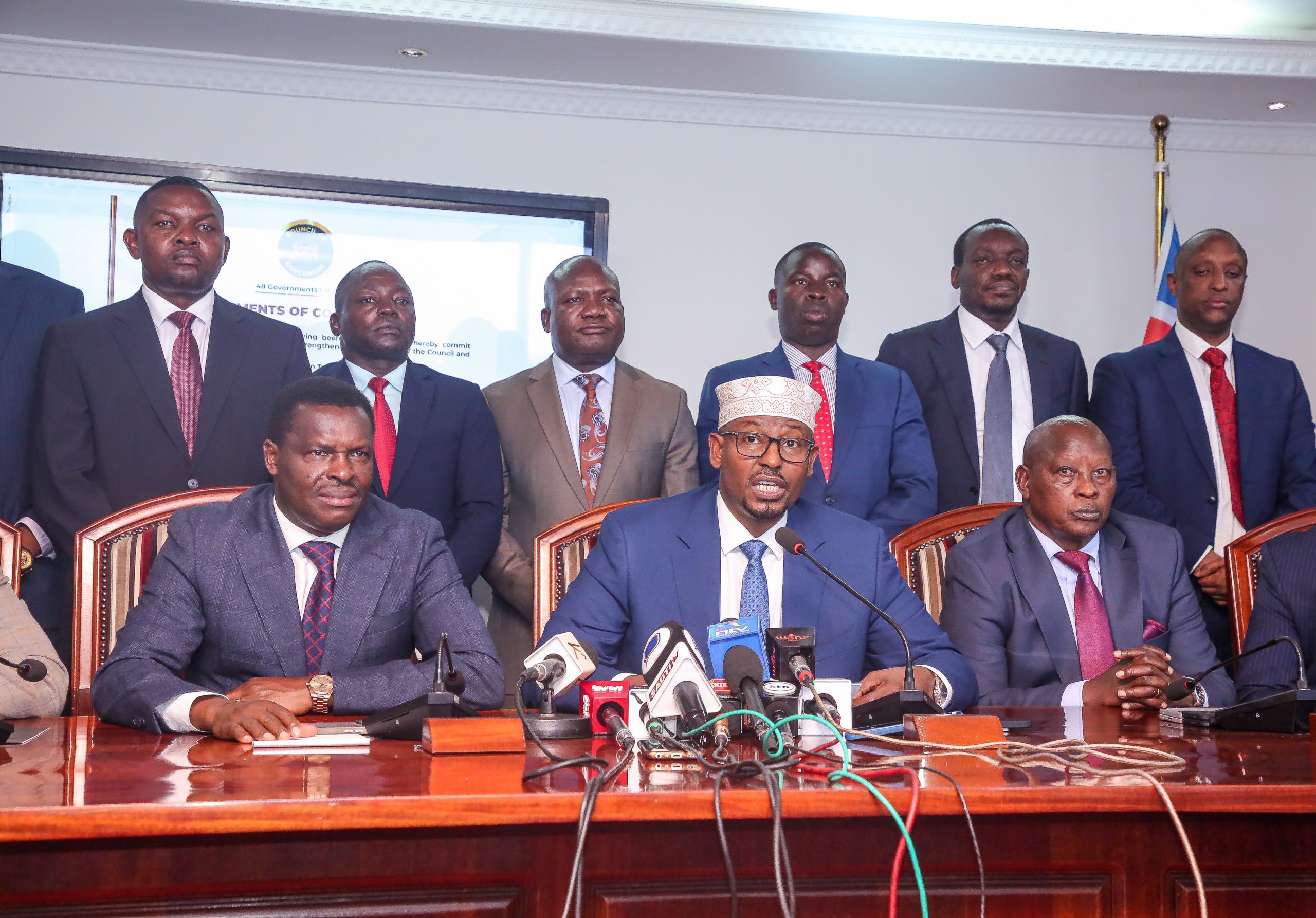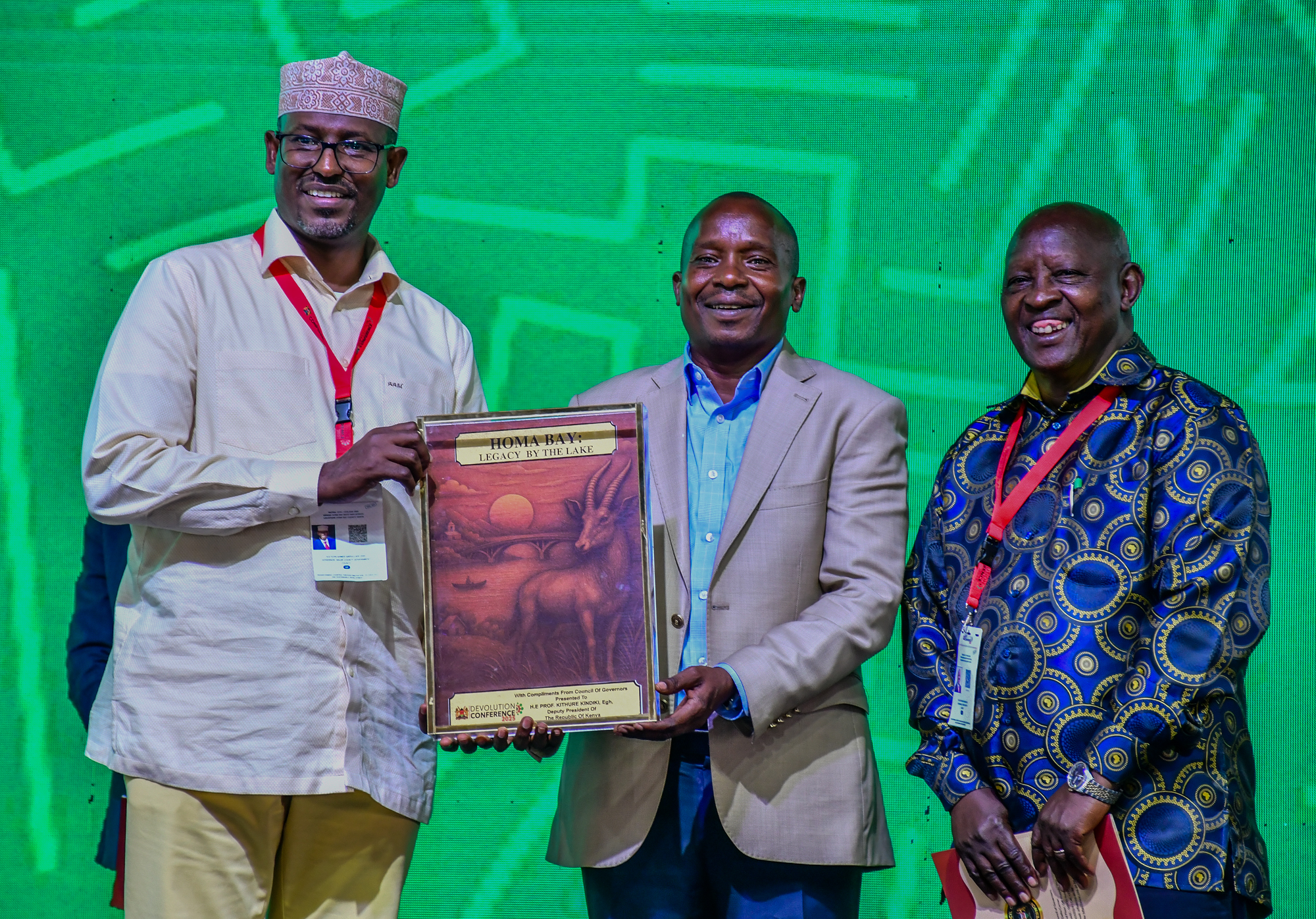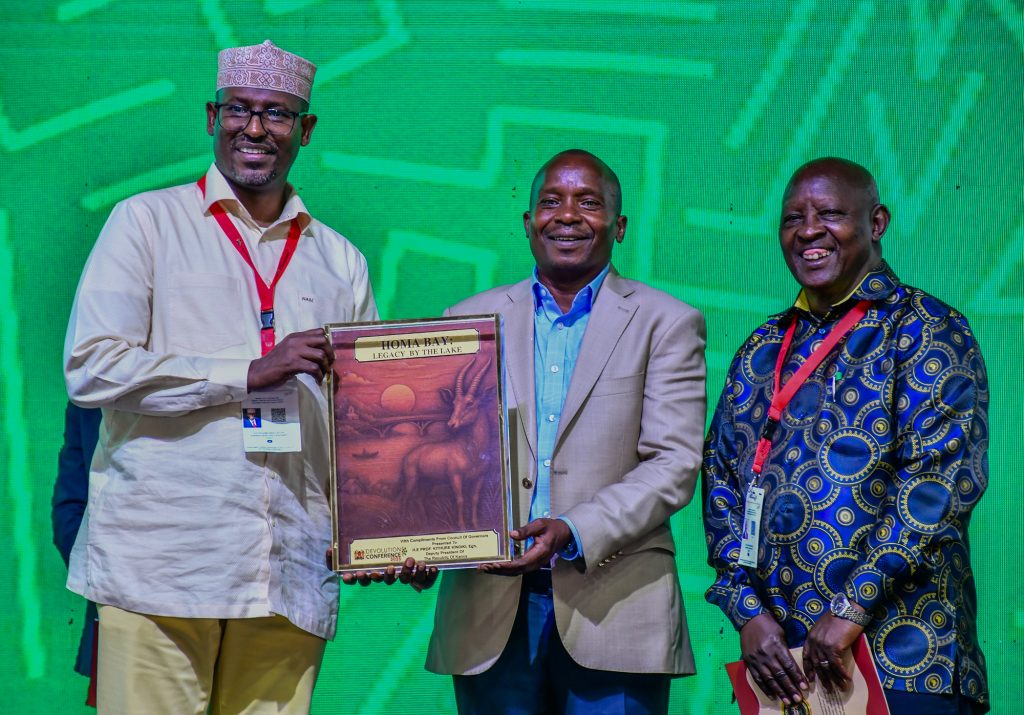Consensus and renewed commitment to Devolution defined this year’s leadership elections at the Council of Governors (CoG), where H.E FCPA Ahmed Abdullahi (Wajir County) was unanimously re-elected as Chairperson and H.E Dr. Mutahi Kahiga (Nyeri County) as Vice Chairperson. Nandi Governor Stephen Sang who served as the Council Whip for the past 3 years was appointed the Chair of the Resource Mobilization and Partnerships Committee while his Tharaka Nithi counterpart assumed the Chief Whip position.
The elections were conducted during a full Council Meeting held on Monday, 6th October 2025. In line with Sections 19(2) and (3) of the Intergovernmental Relations Act, 2012, the exercise saw the election of the Executive and Technical Committee Chairs, responsible for steering the Council in executing its mandate and strengthening Devolution in Kenya.
Among those elected include H.E. FCPA Fernandes Barasa (Kakamega County) – Finance, Planning and Economic Affairs Committee, H.E. Abdullswamad Shariff Nassir (Mombasa County) – Health Committee, H.E. Rt. Hon. Kenneth Lusaka, EGH (Bungoma County) – Agriculture and Livestock Development Committee, H.E. Dr. Wilber Ottichilo (Vihiga County) – Environment, Forestry and Climate Change Committee, H.E. Nathif Jama (Garissa County) – Arid and Semi-Arid Lands and Disaster Risk Management Committee, H.E. Dr. Paul Otuoma (Busia County) – Blue Economy Committee, H.E. Dr. Erick Mutai (Kericho County) – Education Committee, H.E. Simon Kachapin (West Pokot County) – Gender, Youth, Sports, Culture and Social Services Committee, H.E. Gladys Wanga (Homa Bay County) – Human Resources, Labour and Social Welfare Committee, H.E. Wisley Rotich (Elgeyo Marakwet County) – Information, Communication Technology and Knowledge Management Committee, H.E. Prof. Anyang’ Nyong’o (Kisumu County) – Land, Housing and Urban Development Committee, H.E. Dr. Ochilo Ayacko (Migori County) – Legal, Constitutional Affairs and Intergovernmental Relations Committee, H.E. Paul Simba Arati (Kisii County) – Security and Foreign Affairs Committee, H.E. Patrick Ole Ntutu (Narok County) – Tourism and Wildlife Committee, H.E. Dr. Moses Badilisha Kiarie (Nyandarua County) – Trade and Cooperatives Committee, H.E. Kimani Wamatangi (Kiambu County) – Transport, Infrastructure and Energy Committee and H.E. Joshua Irungu (Laikipia County) – Water and Natural Resources Management Committee.
Making his remarks, Chairperson Ahmed Abdullahi thanked his colleagues for the renewed vote of confidence, pledging to build on the gains achieved in the past year.
“I take this opportunity to appreciate my fellow Excellency Governors for the trust and confidence they have bestowed upon me to serve once again as the Chairperson of the Council of Governors,” he said. “My commitment is to work with each one of you to strengthen the voice of County Governments and safeguard the principles of Devolution as enshrined in our Constitution.”
Governor Abdullahi outlined key priorities for the new term, including the operationalization of the Devolution Training Institute, complete transfer and costing of all devolved functions and lobbying for increased equitable share and timely disbursements. He further pledged to advocate for a review of laws that claw back on Devolution, expansion of Ugatuzi Sacco membership and implementation of the Strategic Plan 20222 – 2027.
He underscored the need for sustained unity and commitment among all Governors, emphasizing that “the progress of Devolution relies on collective effort and consistent advocacy for County interests.”
In his remarks, Vice Chairperson Dr. Mutahi Kahiga expressed gratitude for his re-election and lauded the Council for fostering collaboration and shared purpose over the past year.
“This role is both a privilege and a solemn duty and I accept it with a clear sense of purpose and commitment,” he said. “Together, we can drive transformative change for our Counties and the people of Kenya.”
Dr. Kahiga pledged to focus on defending County interests in Parliament and the Executive, strengthening Intergovernmental Relations and promoting unity and accountability within the Council. He also emphasized the importance of strategic partnerships and resource mobilization to enhance service delivery and resilience at the County level.
“As we continue to strengthen Devolution, let us remember that our strength lies in our unity and our shared commitment to improving the lives of the citizens we serve,” he added.
The Council also reaffirmed its position on recent national debates, particularly dismissing claims by the Kenya Medical Practitioners, Pharmacists and Dentists Union (KMPDU) alleging the death of 136 infants in Kiambu County, describing the reports as false, misleading and politically motivated.
“The Council disassociates itself from the false and sensational claims published by KMPDU. Health is a fully devolved function and must be free from political interference,” the Council’s Chair stated.
The re-election of the Chairperson and Vice Chairperson, alongside the election of new committee chairs, marks a renewed sense of stability and collective resolve by the 47 Governors to strengthen Devolution and advance service delivery across the country.



